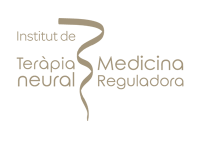How To Detox Your Brain
13 Minutes
Detoxification is a popular keyword these days, grabbing our attention the moment we read, see, or hear it. People have a vested interest in detoxes and liver cleansers right now than at any time of the year, primarily as we recoup from the holidays. But what exactly is detoxification? And how does our brain come into play?
Nowadays, you can find a detox regimen for almost anything, even your brain. With the right nutrients, detoxifying herbs, and a major change in your diet, among several other things, you can presumably:
- Reduce tiredness
- Improve your memory
- Enhance your mental function
Detox is a necessary biological activity, according to science. When the body system detoxifies, waste in the form of meals and toxins is packaged and expelled from the body. We clear this waste through a variety of methods, including our gastrointestinal system, respiratory tract, genitourinary tract, and sweat glands, and it necessitates the involvement of several organs, including the liver, gallbladder, lungs, kidneys, skin, and, yes, the brain.
Here’s a glimpse into the functions of this detox system and how you can detox your brain.
A brain detox is a mechanism that rids the central nervous system of waste materials. The glymphatic system is engaged during deep sleep and circulates cerebral spinal fluid throughout the brain. Toxins and other impurities are then pushed out, aiding in the detoxification of the brain.
There are several supplements marketed to detox the brain, but doing so naturally is safer and easier than it sounds. A “detox” is a way of eliminating toxic or harmful chemicals from the body. Detox of the brain is not emphasized as frequently as traditional detoxification, yet it is an important aspect of ensuring good health.
The glymphatic system also referred to as the glymphatic clearance pathway, eliminates toxic waste from the central nervous system. It also aids in the distribution of glucose, neurotransmitters, lipids, amino acids, and glucose throughout the brain. The glymphatic system detox is dormant when a person is awake, thus the majority of these processes take place when they sleep.
To avoid getting too technical, our bodies’ detox pathways require a range of nutrients that function as catalysts and cofactors for the enzymes engaged in this multi-stage process. Activation, reduction, oxidation, methylation, conjugation, hydrolysis, and recirculation are examples of these steps. Because detox is so complex, it requires a large percentage of the body’s energy resources.
When our bodies are attacked by pro-inflammatory foods, medications, tobacco, alcohol, and foreign substances like heavy metals, drugs, chemicals, microorganisms, and persistent organic pollutants, our natural detox systems can become overburdened, and harmful metabolites can pile up, eventually triggering mitochondrial dysfunction, immunotoxicity, metabolic deficiencies, and neuroinflammation (also referred to as inflammation in the brain). As a consequence, energy is diverted from the body, and metabolically active organs like the heart, brain, and muscles begin to suffer. It is at this point that we begin to feel ill, experiencing not only persistent weariness and weakness but also delayed processing and cognitive issues.
The term “brain toxins” refers to harm to the brain or nervous system induced by exposure to toxic substances, either natural or man-made.
These poisons have the potential to destroy or damage nerves by altering nervous system activity. Nerves are necessary for information processing and transmission in the brain and other regions of the central nervous system.
Because of its increased metabolic rate, brain tissue is the most vulnerable to brain toxins. This is accompanied by astrocytes, microglia, oligodendrocytes, and capillary endothelial cells.
Based on the composition of a brain toxin, it will cause harm to certain areas or cellular constituents of the central nervous system. Non-polar chemicals are more lipid soluble and hence have easier access to nervous tissue than polar ones, which are less lipid soluble. The body’s responsiveness to neurotoxins is governed by factors like the neurotransmitter involved, the integrity of the cellular membrane, and the activation of detoxification mechanisms.
Some forms of neurotoxic chemicals that have contaminated our environment and are hard to avoid contact with, include:
- Mercury
- Lead
- Cadmium
- Solvents
- Insecticides
- Exhaust gases from automobiles
- Chlorine
- Phenol
- Formaldehyde
The impacts of brain toxicity are determined by a variety of factors, including the neurotoxin’s properties, the dose a person is exposed to, the ability to metabolize and remove the toxin, and the capacity of affected mechanisms and structures to recover, and the vulnerability of a cellular target.
Toxins found naturally in the brain that can cause neurotoxicity include beta amyloid, oxygen radicals, and glutamate. Neurotoxicity has been found to be a primary factor in progressive neurological illnesses like Alzheimer’s disease, in addition to producing mobility difficulties, cognitive impairment, and autonomic nervous system malfunction.
Some neurotoxic effects are instantaneous, while others might take months or even years to show.
But how do get rid of neurotoxins? Continue reading to know about mind cleansing and getting rid of brain toxins.
The body’s glymphatic system is responsible for removing toxins from the brain and nervous system via a network of blood channels. A good night’s sleep will keep you cognitively alert because the glymphatic system is the most active when you are asleep.
What Is The Function Of The Glymphatic System?
In this system, cerebrospinal fluid (CSF), which fills areas close to smaller blood arteries that flow to the brain, is critical to its operation.
When CSF and interstitial fluid (the fluid that surrounds brain cells) come into contact, they become one. This contributes to the development of a glymphatic vasculature that “detoxifies” the brain by waste collection, like proteins, metabolites, poisons, etc.
Afterward, this system removes the waste from your brain and excretes it throughout your body.
The increasing gap between cerebrospinal and interstitial fluid during sleep increases glymphatic activity. According to certain research, exercise can also increase glymphatic activity.
The glymphatic system is hypothesized to play a role in the development of several brain illnesses, as well as symptoms such as memory loss and brain fog. Parkinson’s, Alzheimer’s, Huntington’s, and ALS can all be prevented if the nervous system has a well-functioning “cleansing mechanism,” according to researchers.
When your brain is constantly exposed to toxins, specialists believe that your glymphatic system may have to work harder, particularly over a long period of time. Brain toxicity can be brought on by a variety of factors.
- Inflammatory foods in a high-processed diet
- Drinking too much alcohol
- Use of illicit drugs and tobacco
- Medications such as antidepressants
- Environment pollution as well as the intake of foreign chemicals like heavy metals
Even though it isn’t a toxin, lack of sleep has been related to weakened mental abilities. There are a number of ways to reduce the effects of aging on the glymphatic system, including adopting good lifestyle practices that increase CSF and artery blood flow.
So how to detox your brain from the adverse effects of toxins, contaminants, and inflammation? Here are a few suggestions:
Begin By Doing An Elimination Diet.
A thorough elimination diet can reveal your food intolerances and sensitivities. Consumption of foods that you are sensitive to can cause inflammation and make it tough to cleanse and lose weight.
Consume A Variety Of Vegetables And Fruits.
Because different colors signify different nutrients and vitamins, add ginger, garlic, turmeric, broccoli seed sprouts, beets, and herbs like rosemary and thyme to your daily diet. Regularly consume cruciferous veggies. Seeds, nuts, legumes, and fatty fruits like bananas and avocados are also important food groups.
Incorporate Complex Carbohydrates In Your Diet.
While simple and processed carbohydrates should be avoided, complex carbs are an important source of energy for the brain, as the molecule of glucose broken down from whole grain and starch sources by the complicated mechanisms of our body’s biochemical processes the preferred energy source of the brain and its cells.
Include Intermittent Eating Patterns In Your Meal Planning.
Allowing the body to rest from digestion will assist in direct energy away from the gastrointestinal system and into the organs required for detoxification processes. This can be accomplished using a simple intermittent fasting diet.
Make Every Effort To Limit Your Exposure To Poisons And Pollutants.
Eat organic whenever possible to reduce your exposure to pesticides, farm chemical residues, and herbicides. Make use of environmentally friendly personal care products, cosmetics, and cleaning chemicals.
Tailor Your Supplements For Increased Detox Capacity.
This can be accomplished through the use of supplements such as milk thistle for liver health, NAD+, and ubiquinol for mitochondrial support, Coleus forskhii for respiratory support, N-acetylcysteine for supplemental antioxidant support as detoxification produces reactive oxygen species that are harmful to our cells and L-glutamine for gastrointestinal support. Consider using plants like Boswellia, Lion’s mane, and Macuna pruriens to help your brain. Speak with a naturopathic doctor, an integrative physician, or another supplement-savvy health care professional for more information on how to use these supplements and in what dosage.
Regular Physical Activity And Exercise.
Run, hike, walk, dance, take a yoga class, and ride your bike. Sweating every day, any way you can benefit your detoxification pathways and your brain.
Deep Breathing Exercises Alternating With Occasional Fast Breathing
Breathing causes waste byproducts to be expelled. Rapid breathing produces alkaline urine, which can aid in the excretion of other toxin metabolites.
Maintain Proper Hydration.
Fill up your reusable water container at least once a day. Proper fluid balance promotes blood and lymph flowing through the kidneys, resulting in greater toxin clearance via urination.
Spend At Least 20 Minutes Each Day In Nature.
Immersion in nature enhances mental clarity, reduces anxiety and stress, and has good physiological impacts like reduced heart rate, respiration rate, and blood pressure. These increased physiological characteristics can only benefit the body’s detoxification process. So, every day, go for a stroll, go around the park, or relax on your lawn for a few minutes.
Get At Least 7 To 8 Hours Of Sleep Per Night.
The brain can heal cellular damage caused by chemicals and other exposures during restorative sleep. By obtaining enough sleep each night, you can ensure that your brain has a chance to slow down and heal itself.
Brain Detox Supplements
Brain foods include the following:
- Proteins
- Beneficial fats
- Omega-3 fatty acids
- Antioxidants
- Vitamins
Here are a few examples:
- Broccoli, Kale, Spinach, And Other Dark Green Vegetables
- Salmon, Canned Tuna, Pollack, And Other Low-Mercury Fish
- Berries
- Coffee And Caffeinated Tea
- Nuts
You will never go wrong by increasing your intake of fresh fruit and vegetables, whole grains, and lean protein. Reducing your intake of processed meals and saturated fats can also help your cognitive performance.
Take Some Time To Unwind.
Mental, as well as physical breaks, are essential. Make it a habit to relax your brain by setting aside time to simply sit and appreciate the moment. This will allow your brain to recharge and increase your creative energy. Your brain will be grateful.
Don’t feel bad about doing nothing. Sit back and relax with a cup of coffee or tea, listen to the radio, or watch the sunset. Just tell yourself that you’re helping your brain.
Try Some Mental Workouts
Don’t forget to exercise your head as well. Physical activity benefits the brain, but don’t overlook mental activity.
Training your cognitive abilities can help us keep them well-tuned and functioning optimally.
Try:
- Putting together crossword puzzles (the more pieces, the better)
- Studying a different language (try Duolingo)
- Listening to music
- Mindfulness and meditation
Go For An Infrared Sauna Session.
Infrared saunas generate heat from within, similar to a fever, which aids in detoxifying via the sweat glands. They’re also quite calming as an added bonus.
When you detox your brain, you also detox your body and vice versa. Do not be shocked if your body feels more energetic, stronger, and more effective after clearing your mind and increasing brain function.
Here are several indications from your brain that you need to detox:
- Mental fogginess
- Mood changes
- Fatigue
- Sleeping problems
- Inability to concentrate or recall
If you are associated with at least three of the above, it’s time to detox, and we are here to assist.
Three Critical Reasons to Consider a Brain Detox
Disrupted metabolism. Throughout the day, your brain is constantly at work building proteins, transmitting signals, collecting and evaluating data, and coordinating the internal organs. The glymphatic system in your brain is responsible for removing waste material from your central nervous system. Consider the following: If you’re preparing a large meal for your family, you’ll need plates and ingredients, which can get dirty, so cleaning as you go will help maintain your work area tidy and pleasant. But there are times when we simply cannot keep up, and the clutter grows. As you finish your supper, the kitchen sink is piled high with plates and cutlery, and the countertop is a mess. The glymphatic system is the figurative Mr. Clean for your brain, and it requires a good cleaning.
Waste accumulation leads to dysfunction. Just like a dirty kitchen might attract unwelcome rodents and insect animals, the microenvironment of your brain and nervous system will have an effect on its functionality. The accumulation of unhealthy materials, according to Henry Lindlahr (1862-1924), who wrote the book Nature Cure, is one of the fundamental causes of sickness. Morbid matter can refer to both metabolic waste (as in our kitchen scenario) and environmental toxins, that may be a doughnut at work, highway exhaust, or mold in your fridge filter. Your system will intelligently share that knowledge with you in the shape of symptoms, based on the sort of toxic burden. It is our responsibility to listen and detox.
Chronic disease is caused by long-term toxicity. Chronic toxicity has been shown in studies to produce chronic disease. For example, doctors believe that insufficient clearance of beta-amyloid deposits from the brain causes Alzheimer’s disease. According to Mayo Clinic research, excessive levels of lead exposure can cause anxiety, memory problems, learning challenges, and a variety of other symptoms.
If you are unfamiliar with the majority of the interventions listed above, proceed cautiously to avoid feeling overwhelmed. Too much too quickly may even make you feel worse before it makes you feel better.
What are the symptoms that your body is detoxifying? While these adverse reactions are not always produced by a brain or mind detox, when you begin a new diet, supplement habit, or fitness program, you may experience brain detox symptoms such as:
- Headaches
- Sleep deprivation and fatigue
- Urinating frequently
- Digestion problems and loose stools
- Cravings for sweets and carbohydrates
- Nausea
- Muscle pain
- Irritability
These should fade away in 1 to 2 weeks; however, if they intensify or persist, you should reduce your activity and consult a doctor. If you have pre-existing health conditions, like kidney or liver disease, Alzheimer’s disease, or diabetes, you should consult your doctor before starting a brain detox/cleanse.
FAQs
Does Neurotoxins Cause Anxiety?
The term “neurotoxicity” refers to any type of impairment to the brain or central nervous system caused by toxins. The body’s neurotransmitter system can be severely harmed during neurotoxicity.
As an outcome, psychological disorders like anxiety and depression may arise. As a reaction, patients may seek relief from other neurotoxic substances, such as prescribed medications and illegal narcotics, which can both exacerbate toxicity and lead to drug dependence.
Is Brain Toxicity Reversible?
Before attempts to reverse neurotoxicity are done, irreparable harm may have occurred. The chance of serious damage is determined by several parameters, including the neurotoxic involved, the duration of exposure, and the strength of exposure.
Furthermore, the consequences of a neurotoxic vary depending on the individual exposed—some people have a genetic susceptibility to toxins in the same way that some people are allergic to nuts.
Abstinence is a critical first step in reversing the impacts of toxicity, alleviating symptoms, and allowing your brain to repair naturally. Another phase is detoxification, which involves medical practitioners using specific therapies to speed up the removal of toxins from the body. Finally, depending on the eventual healing goal, everyone’s answer will be slightly different.
HOW SENSES CAN HELP WITH Detox
Senses is a leading provider of luxury addiction and mental health treatment for affluent individuals and their families, offering a blend of innovative science and holistic methods with unparalleled individualised care.
A UNIQUE METHOD
successful and proven integrative holistic conceptOur program consists of treating only one client at a time individually designed to help you with all the problematic aspects of your life. All individual treatment sessions will be held at your private residence.
more infoYour program is designed based on your personal needs. The team will exchange daily information and adjust the schedule as we go. Our therapists will work with you treating integrative not just the symptoms and goes beyong your stay to ensure lasting success.
more infoOur biochemical imbalance can be affected by diet and stressful life events, but it often goes back to genetics and epigenetics. We do specific biochemical laboratory testing to determine an individual’s biochemical imbalance. Combining the results of the lab tests with anamnestic information and clinical tests, we prescribe an individualized and compounded vitamin, mineral, nutrient protocol to help recover from various disease states.
more infoOur experts combine the best from psychological treatment, holistic medicine to support you individually and providing complementary therapies all coordinated from one source working complementing each other integrative.
more infoUsing latest cutting-edge technology-based therapies such as Neurofeedback, tDCS, and SSP, we can track the biological patterns of your body, giving us valuable insight into your health and well-being as well support your brain and body performance and recovery with neuromodulation.
more infoOur chef and nutrition specialist will design your personalized diet plan supporting your body & mind recovery as well as helping with weight management. Nutrition workshops and mindful eating sessions will help you to maintain a healthy lifestyle.
more infoDetox TREATMENT LASTING APPROACH
0 Before
Send Request
0 Before
Define Treatment Goals
1 week
Assessments
1-4 week
Integrative Holistic Therapies
5-12 week
Aftercare
12+ week
Refresher Visit
Detox Insights
latest news & research on DetoxZeolite Detox
A zeolite detox utilizes a particular chemical called aluminosilicate to enable comprehensive body toxin purification. Unlike most other colon clearing detoxes, zeolite detoxes do not comprise of fiber,
read moreLiver Detox Foods
When it comes to detoxifying your liver, alcohol isn't the only thing you should avoid. Additionally, your liver's health might be jeopardized by a variety of other foods.
read moreAccreditations



























































